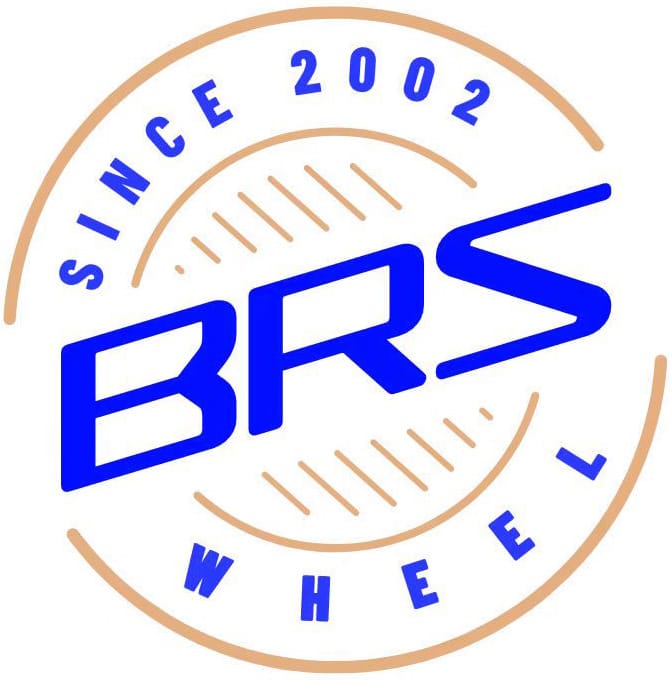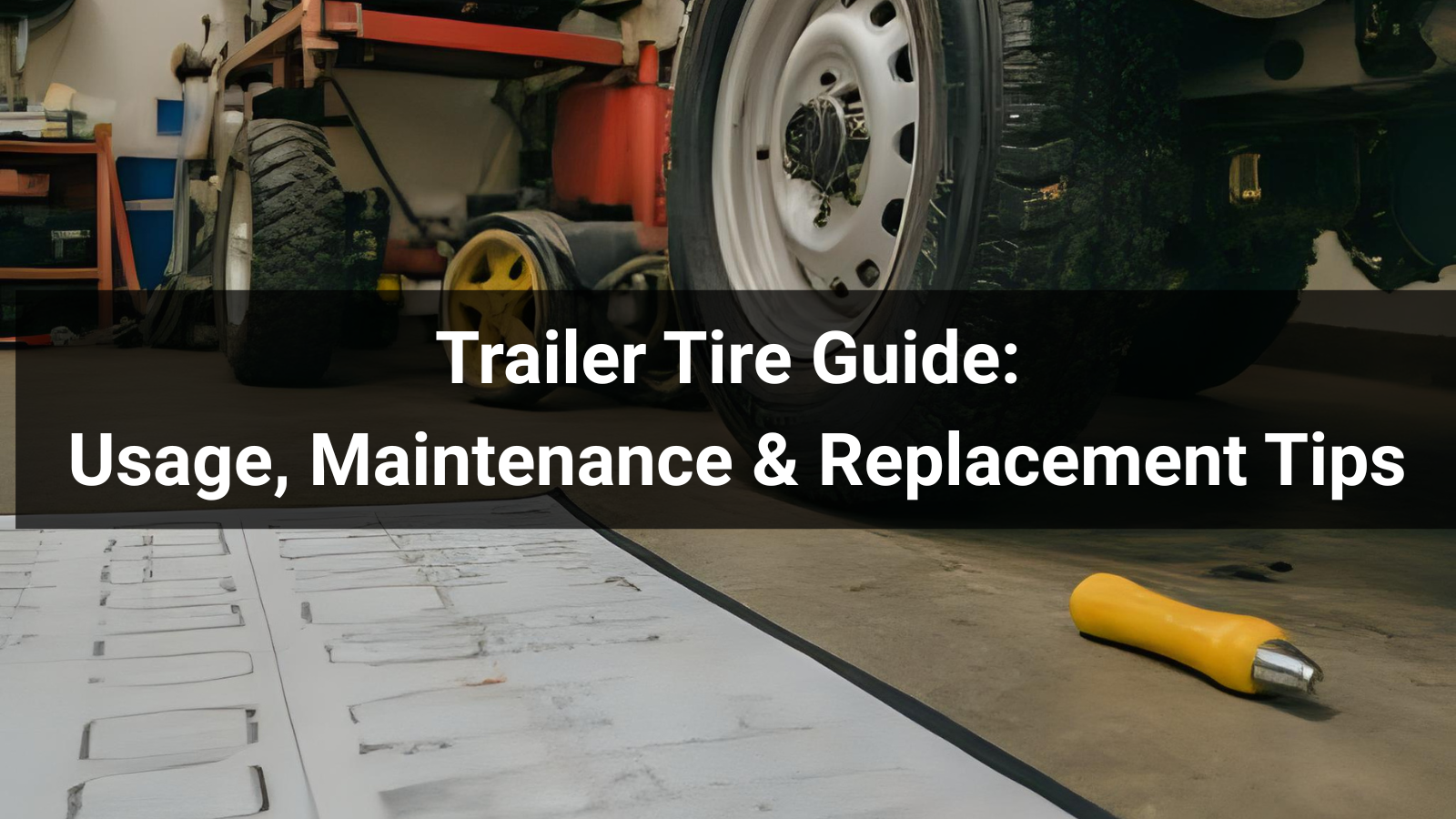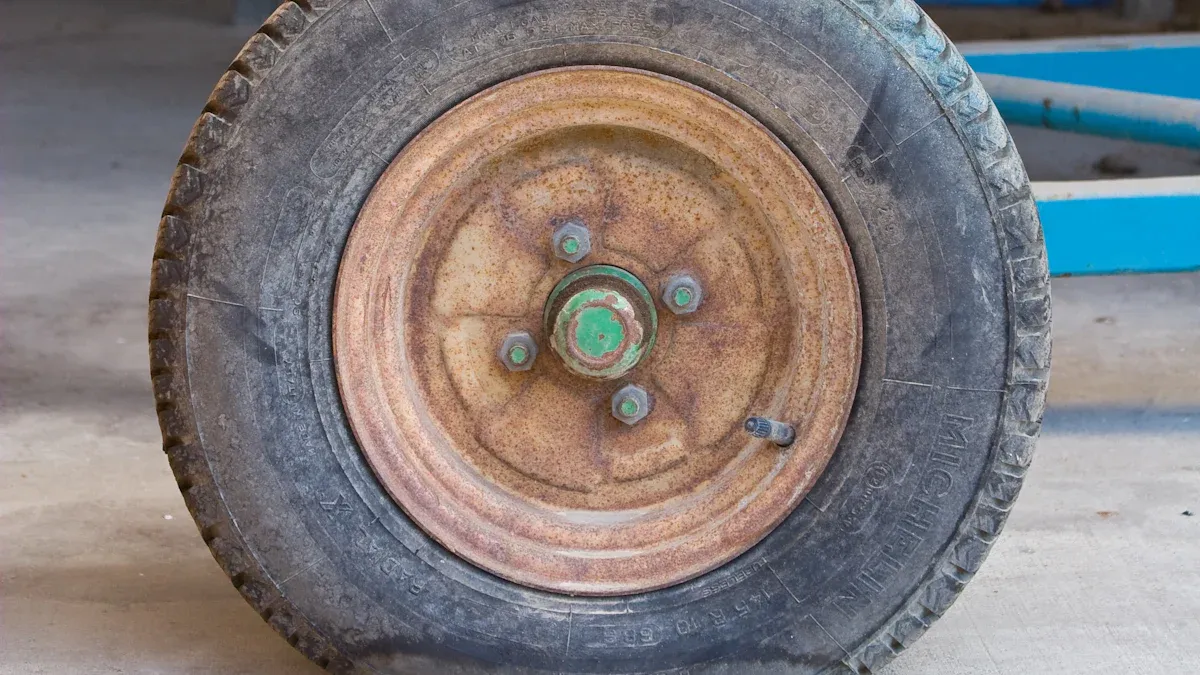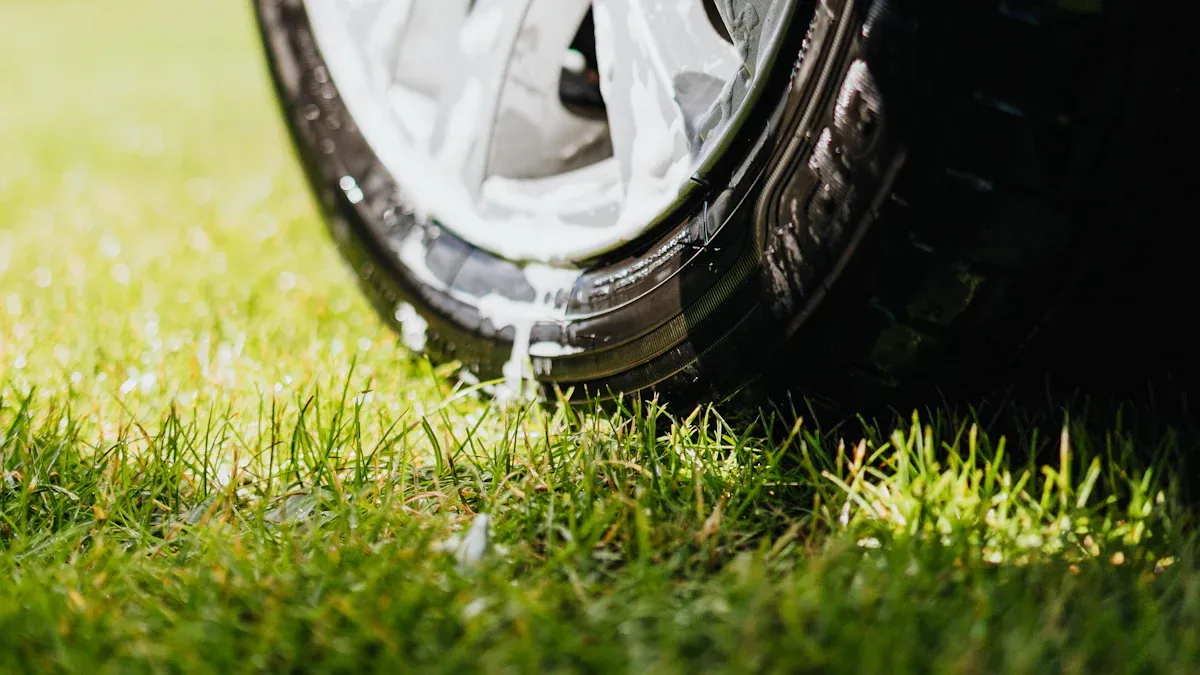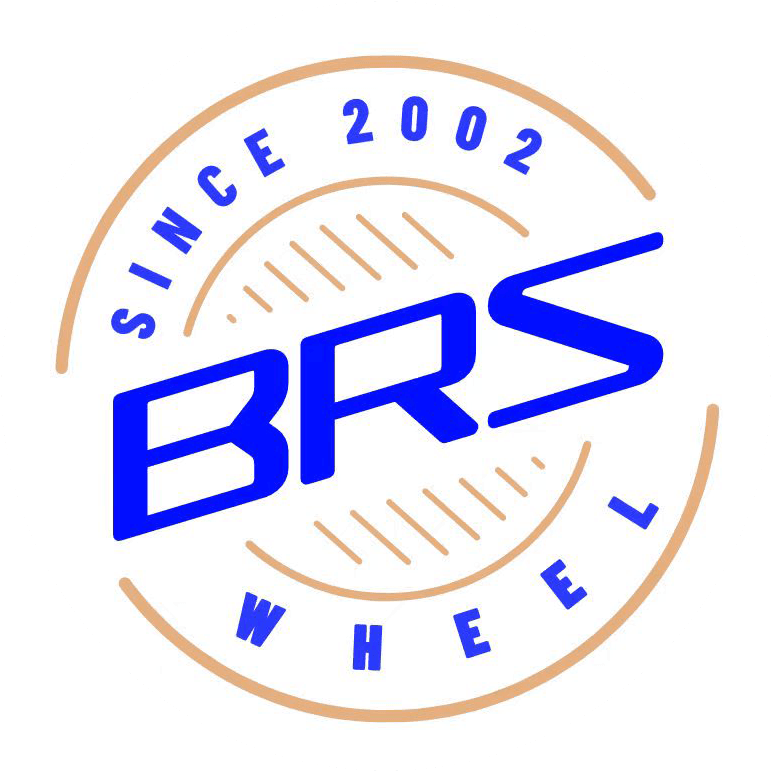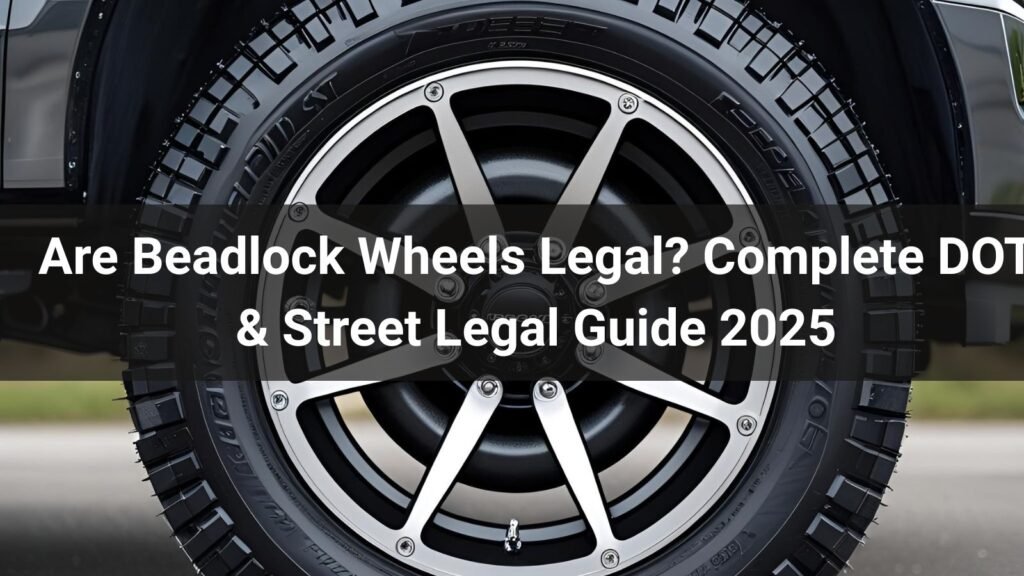
The legal status of beadlock wheels remains one of the most confusing topics in the off-road community. With varying regulations, misconceptions about DOT approval, and different types of beadlock systems available, many enthusiasts find themselves uncertain about what’s legal for street use. This comprehensive guide addresses all aspects of beadlock wheel legality, from federal DOT regulations to state-specific laws, helping you make informed decisions for your vehicle setup.
Table of Contents
- Understanding Beadlock Wheels and Their Purpose
- DOT Regulations Explained: Why Most Beadlocks Aren’t Approved
- True vs. Fake Beadlocks: Legal Differences
- Street Legal Alternatives and DOT-Approved Options
- State-Specific Laws and Enforcement Variations
- Safety Considerations and Risk Assessment
- Choosing the Right Wheels for Your Application
- Professional Recommendations and Best Practices
Understanding Beadlock Wheels and Their Purpose
Beadlock wheels represent a specialized wheel design primarily developed for extreme off-road conditions. Unlike conventional wheels that rely solely on air pressure to maintain the tire bead against the rim, beadlock wheels use a mechanical clamping system to physically secure the tire bead to the wheel.
The primary function of beadlock wheels is to prevent tire bead separation during low-pressure operation. When traversing challenging terrain like rock crawling, sand dunes, or mud, drivers often reduce tire pressure to increase the tire’s contact patch and improve traction. At extremely low pressures (sometimes as low as 5-8 PSI), conventional wheels risk having the tire bead slip off the rim, leading to sudden deflation and potential loss of vehicle control.
| Wheel Type | Minimum Safe Pressure | Primary Use | DOT Status |
|---|---|---|---|
| Conventional Wheels | 15-20 PSI | Street and light off-road | DOT Approved |
| True Beadlock | 5-8 PSI | Extreme off-road | Not DOT Approved |
| Fake Beadlock | 15-20 PSI | Aesthetic/light off-road | DOT Approved |
| Internal Beadlock | 10-15 PSI | Multi-purpose | Some DOT Approved |
The mechanical advantage of beadlock wheels becomes apparent when you understand the physics of tire mounting. The clamping ring creates a physical barrier that prevents the tire bead from moving inward under lateral forces, maintaining seal integrity even when internal pressure drops significantly.
DOT Regulations Explained: Why Most Beadlocks Aren’t Approved
The Department of Transportation (DOT) establishes federal motor vehicle safety standards that all street-legal vehicles and components must meet. Understanding beadlock wheel regulations requires examining the specific standards that apply to wheels and tires.
In most cases, beadlocks are not legal for on-road use due to DOT regulations, primarily because they fail to meet Federal Motor Vehicle Safety Standard (FMVSS) 139, which governs new pneumatic tires for light vehicles. This standard requires specific testing protocols that most traditional beadlock designs cannot pass.
The main regulatory concerns include:
- Structural Integrity: DOT testing requires wheels to withstand specific impact and fatigue tests. The additional components in beadlock wheels, including the clamping ring and bolts, create potential failure points that may not meet these standards.
- Uniform Manufacturing: DOT approval requires consistent manufacturing processes and quality control. The assembly-required nature of many beadlock wheels introduces variables that conflict with uniformity requirements.
- User Maintenance: Beadlock wheels require periodic maintenance, including bolt torque verification. DOT standards assume components will maintain their safety characteristics without user intervention.
- Certification Costs: The testing and certification process for DOT approval is expensive and time-consuming, making it economically unfeasible for many manufacturers focused on the specialized off-road market.
However, it’s important to note that some beadlock systems like Rock Monster internal double beadlock wheels are military grade adapted for civilian use and are Street Legal – DOT Approved. These represent newer technologies that have successfully navigated the certification process.
True vs. Fake Beadlocks: Legal Differences
The distinction between true and fake beadlock wheels is crucial for understanding legality. This difference extends beyond mere aesthetics to fundamental functional and legal classifications.
True Beadlock Wheels: These feature a functional clamping ring that physically secures the tire bead to the wheel. The outer ring is removable and uses multiple bolts (typically 24-32) to create clamping force. True beadlocks provide actual bead retention capabilities but are generally not DOT approved for street use.
Fake Beadlock Wheels: Also called “beadlock-style” wheels, these simulate the appearance of true beadlocks without the functional clamping mechanism. The outer ring is typically welded or permanently attached and serves only an aesthetic purpose. These wheels function like conventional wheels and can receive DOT approval since they don’t incorporate the problematic mechanical beadlock components.
At Ningbo BRS Auto Parts Co., Ltd, we manufacture both real and fake beadlock designs to meet different customer preferences and legal requirements. Our beadlock racing wheels come in various configurations, allowing customers to choose the appropriate option for their intended use.
The legal implications are significant:
- Fake beadlocks can be legally driven on public roads in all states
- True beadlocks face restrictions in most jurisdictions
- Some states may allow true beadlocks with specific conditions or exemptions
- Insurance implications may differ between the two types
Street Legal Alternatives and DOT-Approved Options
For enthusiasts who need both street legality and enhanced off-road capability, several alternatives exist that provide compromise solutions between conventional wheels and traditional beadlocks.
Internal Beadlock Systems: Companies like Hutchinson have developed internal beadlock technologies that achieve DOT approval. These systems work through internal double beadlock technology in DOT approved, street legal wheels. The technology places the beadlock mechanism inside the wheel, where it doesn’t interfere with DOT testing protocols.
Dual-Configuration Wheels: Some wheels are dual configurable where you have to purchase an additional beadlock ring in order to use them as an actual beadlock. These wheels can operate in DOT-compliant mode for street use and be converted to functional beadlock configuration for off-road use.
Heavy-Duty Conventional Wheels: High-quality steel wheels with reinforced construction can often handle lower pressures than standard wheels while maintaining DOT compliance. Our steel off-road wheels are engineered to provide enhanced durability for off-road applications while remaining street legal.
| Alternative Solution | Street Legal | Low Pressure Capability | Cost Range | Availability |
|---|---|---|---|---|
| Internal Beadlock | Yes (DOT) | 10-15 PSI | $800-1200/wheel | Limited |
| Dual-Config Wheels | Yes/No (convertible) | 8-12 PSI | $400-700/wheel | Moderate |
| Heavy-Duty Steel | Yes | 12-18 PSI | $150-300/wheel | Widely Available |
| Fake Beadlock | Yes | 15-20 PSI | $200-500/wheel | Widely Available |
State-Specific Laws and Enforcement Variations
While DOT regulations provide federal standards, individual states have varying approaches to beadlock wheel enforcement. Understanding these variations is crucial for legal compliance, especially for vehicles that cross state lines.
California: California maintains strict enforcement of DOT standards, generally prohibiting true beadlock wheels on public roads. The state’s vehicle code requires compliance with federal safety standards, and law enforcement officers may cite vehicles with non-DOT approved wheels.
Texas: Texas takes a more permissive approach, often allowing beadlock wheels if the vehicle passes safety inspection. Some counties may have additional restrictions, particularly in urban areas.
Arizona and Utah: These states, with their extensive off-road communities, tend toward more lenient enforcement, though the wheels technically remain non-compliant with federal standards.
Eastern States: Many eastern states strictly follow federal DOT requirements, making true beadlock wheels problematic for street use.
Key considerations for state compliance include:
- Vehicle registration requirements
- Annual inspection criteria
- Law enforcement training and awareness
- Insurance company policies
- Liability implications in case of accidents
Safety Considerations and Risk Assessment
The safety debate surrounding beadlock wheels involves multiple factors that extend beyond simple regulatory compliance. Understanding these safety considerations helps make informed decisions about wheel selection.
Proper Installation and Maintenance: True beadlock wheels require precise installation and regular maintenance. Improper bolt torque can lead to wheel failure, while over-torquing can damage the wheel or tire bead. There’s a possibility of damage and tire blowout which can lead to serious safety concerns when beadlocks are improperly maintained.
User Competency: Unlike conventional wheels that are maintenance-free after installation, beadlocks require users to understand proper torque specifications, inspection intervals, and signs of wear or failure.
Quality Variations: The beadlock wheel market includes products of varying quality. Higher-end manufacturers like leading steel wheel brands invest in proper engineering and testing, while cheaper alternatives may lack adequate safety margins.
Application Appropriateness: Using beadlock wheels on vehicles that don’t require their capabilities introduces unnecessary risk without corresponding benefit. For most street driving and light off-road use, conventional wheels provide adequate performance with better safety margins.
Choosing the Right Wheels for Your Application
Selecting appropriate wheels requires careful consideration of intended use, legal requirements, and safety factors. The decision matrix should include several key elements:
Primary Use Analysis:
- Daily driving: Conventional DOT-approved wheels
- Weekend recreation: Fake beadlocks or heavy-duty conventional wheels
- Serious rock crawling: True beadlocks with trailered transport
- Mixed use: Internal beadlock or dual-configuration systems
Vehicle Application: Different vehicle types have varying requirements. Our truck rim selection guide provides detailed information for pickup truck applications, while ATV wheel considerations address specialized off-road vehicle needs.
Budget Considerations: The cost of such wheels are higher because of manufacturing and engineering costs. True beadlocks typically cost 2-3 times more than conventional wheels, while DOT-approved alternatives can cost even more.
At Ningbo BRS, we offer comprehensive wheel solutions ranging from 15″ to 18″ diameters, including popular sizes such as 15×8, 15×9, 15×10, 16×8, 16×9, 16×10, 17×7, 17×8, 17×9, 17×10, 17×12, and 18×8. Our variety of vent-hole designs includes 8-spoke, 8-soft, 10-modular, 10-Daytona, and 5-pipe styles to meet diverse aesthetic and functional requirements.
Professional Recommendations and Best Practices
Based on over two decades of experience in steel wheel manufacturing and collaboration with customers across 40+ countries, we recommend the following approach to beadlock wheel selection:
For Street-Legal Requirements: Choose fake beadlock wheels or internal beadlock systems that maintain DOT compliance. Our beadlock drag racing wheels in fake configuration provide the aesthetic appeal without legal complications.
For Dedicated Off-Road Use: True beadlock wheels excel in extreme conditions but should be transported to and from trail locations on trailers. This approach maximizes performance while maintaining legal compliance for road transport.
For Mixed Applications: Consider dual-configuration wheels or high-quality conventional wheels that can handle moderate pressure reduction safely.
Quality Assurance: Regardless of wheel type, prioritize manufacturers with proper testing facilities and quality control processes. At Ningbo BRS, we maintain our own wheel testing lab and employ over 10 professional technicians specializing in 2D, 3D, and CAE analysis to ensure product reliability.
Professional Installation: Always have beadlock wheels installed and maintained by qualified technicians familiar with proper procedures and torque specifications.
The key to successful wheel selection lies in honest assessment of your needs, understanding of applicable regulations, and commitment to proper maintenance practices. Whether you choose conventional wheels, fake beadlocks, or true beadlock systems, prioritizing safety and legal compliance ensures the best long-term results for your vehicle setup.
For detailed consultation on wheel selection for your specific application, contact Ningbo BRS Auto Parts Co., Ltd at:
- Phone: +86 19810666863
- Email: carrie@brsautoparts.com
- WhatsApp: +86 19810666863
- Website: https://brsrim.com/
- Address: 1st, Rili Middle Road, Yinzhou District, Ningbo, China
Our experienced team provides personalized recommendations based on your specific vehicle, intended use, and local regulations, ensuring you receive wheels that meet both performance requirements and legal standards.
